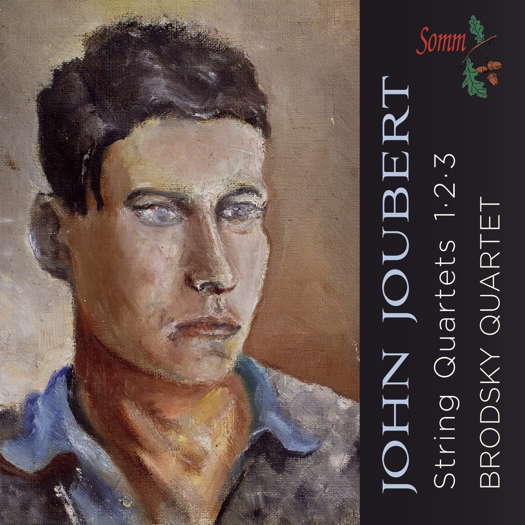 SPONSORED: CD Spotlight. A Fascinating Recording - John Joubert's string quartets, heard by Alice McVeigh.
SPONSORED: CD Spotlight. A Fascinating Recording - John Joubert's string quartets, heard by Alice McVeigh.
All sponsored features >>

Cheerfulness, Humour and Passion
Pietari Inkinen conducts Dvořák's Symphony No 6,
enjoyed by GERALD FENECH
'This fine issue also includes three overtures ...'
Up to 1877 Antonín Dvořák (1841-1904) was still struggling to get his career going and he was still poor. Only playing in provincial orchestras enabled him to earn just enough money to feed his family. Then Brahms came to his rescue. In that same year the Hamburg genius wrote the following to Fritz Simrock, the influential publisher: 'Dvořák has written all kinds of things, operas, symphonies, quartets, piano music. Anyway, he is a very talented man. By the way, he is short of money and I'd like you to keep that in mind.' These few lines changed Dvořák's life upside down. Simrock soon realised that he was on to something special and in a short span of time he and Dvořák struck a very good relationship. Those pieces that up to then had been gathering dust exploded into the limelight and overnight Dvořák became a celebrity.
By the time of the Sixth Symphony in 1880, Simrock had published practically all of the composer's works until then. This not only made the publisher richer, but Dvořák was now in a more comfortable financial position that enabled him and his ever growing family to live a decent life. The Sixth is often referred to as Dvořák's 'first', not only because it was the first such work published by Simrock, but it is considered to be the first real masterpiece in the genre. The Sixth is also often called 'The Czech' because the themes are characterised by Slavonic idioms. For instance, the main theme of the first movement is based on a Bohemian folk song. The theme also appears in the Adagio.
Listen — Dvořák: Adagio (Symphony No 6 in D, Op 60)
(track 2, 0:00-0:53) © 2019 SWR Media Services GmbH,
2020 Naxos Deutschland Musik & Video Vertriebs GmbH :
The third movement is somewhat of a novelty in so far as the usual Scherzo is substituted by a Furiant, a very lively Bohemian dance.
Listen — Dvořák: Scherzo (Furiant). Presto (Symphony No 6 in D, Op 60)
(track 3, 7:19-8:12) © 2019 SWR Media Services GmbH,
2020 Naxos Deutschland Musik & Video Vertriebs GmbH :
The last movement is a nod of respect towards Brahms' Second Symphony, a work that Dvořák greatly admired. Indeed, this work truly encapsulates the cheerfulness, humour and passion of the Czech people.
Listen — Dvořák: Finale. Allegro con spirito (Symphony No 6 in D, Op 60)
(track 4, 5:14-6:04) © 2019 SWR Media Services GmbH,
2020 Naxos Deutschland Musik & Video Vertriebs GmbH :
The Sixth Symphony was premiered in Prague on 25 March 1881 under Adolf Čech and the piece was enthusiastically received. This work was Dvořák's first step on the road to international success.
This fine issue also includes three overtures, which brings me to the operatic Dvořák. Maybe very few people are aware of the fact that one of Dvořák's main objectives was to become an opera composer. Indeed, throughout his career, he wrote no fewer than ten stage-works, but apart from Rusalka, these are hardly ever performed, even in his native country. Vanda (1876) was initially a great success but it did not take much time for the work to disappear completely from the repertoire. Somehow though, the overture survived, and this recording gives the listener a chance to enjoy some rare but exciting music.
Šelma Sedlák (The Cunning Peasant) premiered in January 1878, was also well received. The overture had to be encored, but like Vanda, this opera also fell by the wayside, despite some very lovely melodies set against a rural background.
Listen — Dvořák: Šelma Sedlák Overture
(track 5, 6:50-7:39) © 2019 SWR Media Services GmbH,
2020 Naxos Deutschland Musik & Video Vertriebs GmbH :
Based on two old chorale melodies, 'You who are God's fighters' and 'Holy Wenceslas' from the 15th and 13th centuries respectively, the Hussite Overture was composed in the summer of 1883 for the opening of the Prague National Theatre which was destroyed by fire two years earlier. Premiered at the same venue on 18 November 1883, the piece narrates the tragedies of the Hussite Wars, the burning of John Huss and the restoration and consolidation of peace that followed. The premiere, conducted by Hans von Bulow, was a triumph. Both he and the composer performed it with regularity all over Europe and New York.
Listen — Dvořák: Hussite Overture
(track 7, 12:40-13:35) © 2019 SWR Media Services GmbH,
2020 Naxos Deutschland Musik & Video Vertriebs GmbH :
It happens that even yours truly is a huge admirer of this work full of patriotic fire, stirring orchestration and descriptive ardour. It's as near to perfection as possible. Get it and just let your hair down.
Copyright © 14 July 2020
Gerald Fenech,
Gzira, Malta

CD INFORMATION - ANTONÍN DVOŘÁK: SYMPHONY NO 6 - PIETARI INKINEN



